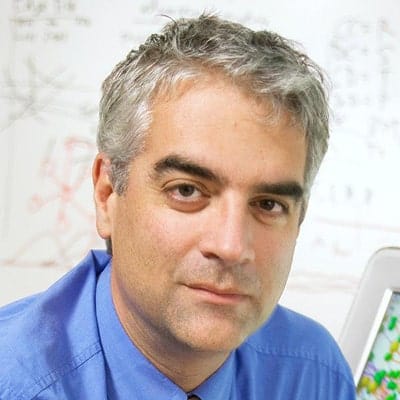As part of the NOMIS-supported project Using Social AI to Modify Collective Behavior in Realistic Networks, NOMIS scientist Nicholas A. Christakis and colleague Hirokazu Shirado have demonstrated that simple artificial intelligence can increase the cooperation of groups of people. Their work was published in iScience/Cell Press.

Interdisciplinary Case Study: Understanding the Cooperation of Humans and Robots through the Collaboration of Social and Computer Scientists
by Hirokazu Shirado and Nicholas A. Christakis
In our research, we have been obsessed with the idea that it should be possible to use artificial intelligence (AI), to support not only individual humans, such as physicians making difficult decisions or athletes perfecting their game, but also groups of humans trying to work together better. Can AI be used to help humans to help themselves? So, for over 5 years, we have been collaborating on a deepening set of projects with this objective. The article published recently in iScience, ‘‘Network Engineering Using Autonomous Agents Increases Cooperation in Human Groups,’’ represents a culmination, in some ways, of this effort—because, among other things, we are able to show that certain kinds of ‘‘simple AI,’’ when introduced into human groups, can actually enhance levels of cooperation in human groups.
Cooperation is challenging because it creates a social dilemma: the group does best if people cooperate, but each individual is always templated to keep their resources given their self-interest. It is also clear that individual people, if they do not have some overarching power (like being the ‘‘boss’’), can find it very difficult to facilitate group cooperation. Hence, in our view, as the authors of this work, new, decentralized approaches to the challenge of cooperation would be very helpful—especially if they could involve the deployment of AI. How might individuals we can call ‘‘reformers’’—and, in particular, bots (i.e., AI agents)—embedded within a group and simply acting locally facilitate cooperation in a wider population?
Continue reading this iScience Backstory: Interdisciplinary Case Study: Understanding the Cooperation of Humans and Robots through the Collaboration of Social and Computer Scientists
Read the iScience/Cell Press publication: Network Engineering Using Autonomous Agents Increases Cooperation in Human Groups



